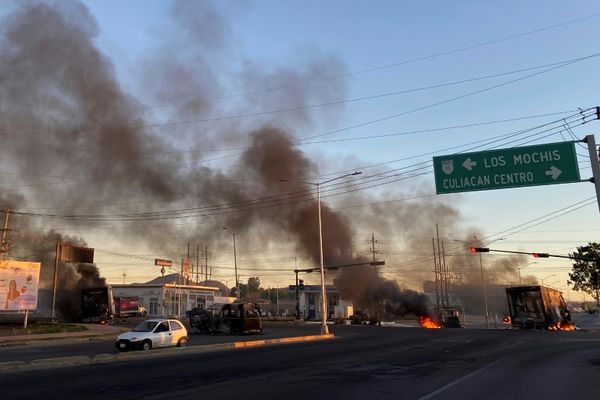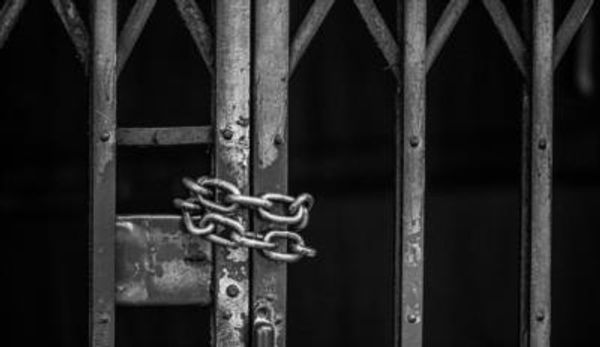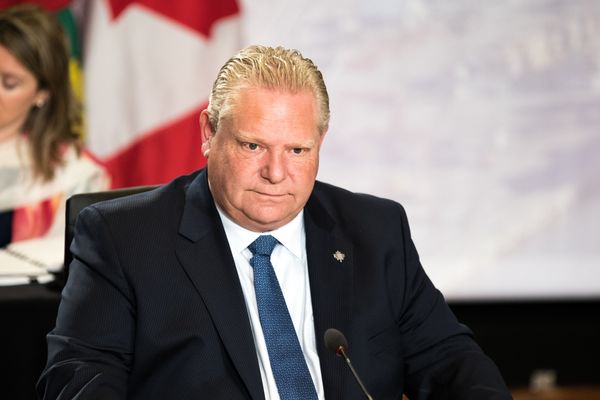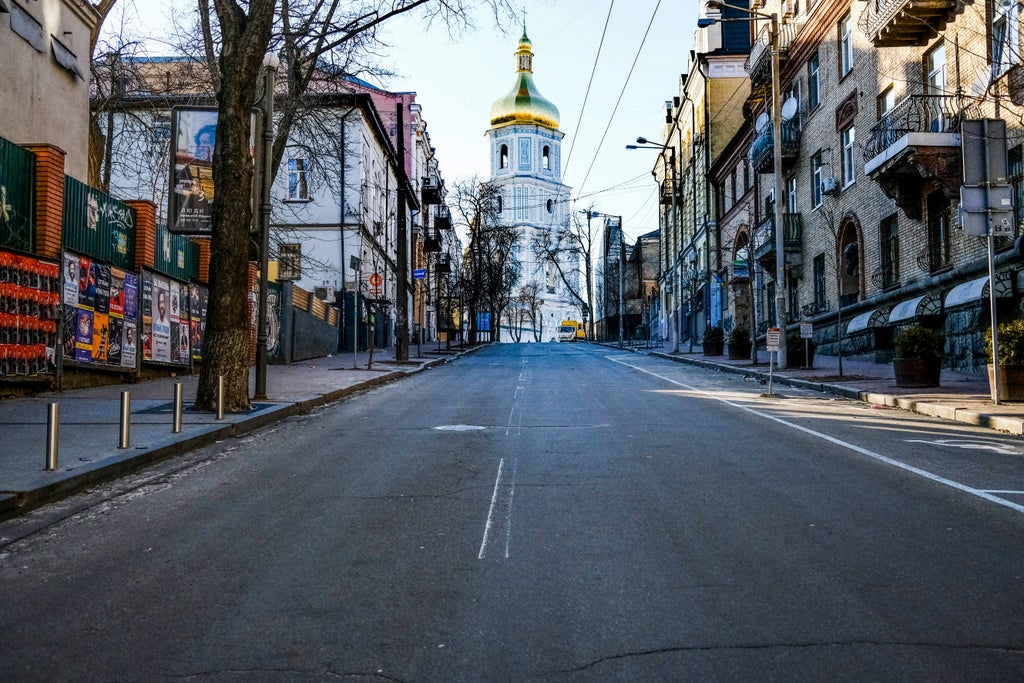
About 2 million people have fled Ukraine’s capital Kyiv, officials said on Thursday, as the encircled city readies for a battle that could determine the war with Russia.
That number means the city’s peacetime population has been approximately halved.
“Every street, every house is being fortified,” said Kyiv’s mayor, Vitali Klitschko. “Even people who in their lives never intended to change their clothes, now they are in uniform with machine guns in their hands.”
The figure was revealed as the war entered its third week. The Red Cross said hundreds of thousands of people in another encircled city, Mariupol, the scene of an attack on a maternity hospital on Wednesday, were suffering shortages of food, medicine, heat and electricity.
Ukrainian president Volodymyr Zelensky said authorities had managed to evacuate almost 40,000 people from the cities of Sumy, Trostyanets, Krasnopillya, Irpin, Bucha, Hostomel and Izyum, but his deputy Iryna Vereshchuk said not a single civilian was able to leave Mariupol on Thursday as Russian forces failed to respect a temporary ceasefire to allow evacuations.
Efforts to send food, water and medicine into the city failed when Russian tanks attacked a humanitarian corridor, Mr Zelensky said.
“This is outright terror ... from experienced terrorists,” he added in a televised address. “The world needs to know this. I have to admit it - we are all dealing with a terrorist state."
Russian warplanes again bombed the southern port city on Thursday.
Attempts to send aid and evacuation convoys have failed for six days. Russian warplanes targeted convoy routes on Thursday, said Petro Andrushenko, an adviser to Mariupol’s mayor.
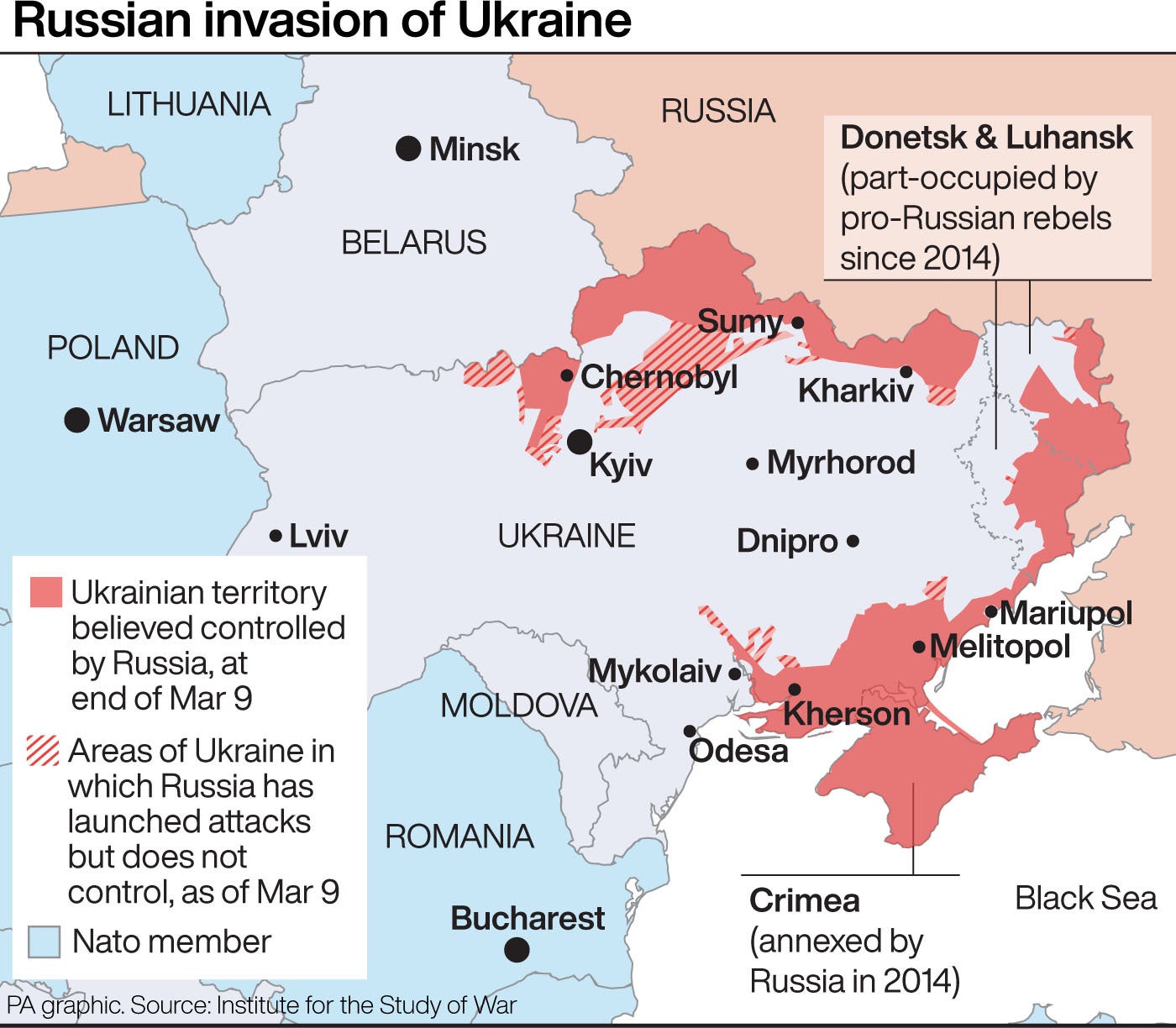
“Air strikes started from the early morning. Air strike after air strike. All the historic centre is under bombardment,” he told Reuters by phone.
“They want to absolutely delete our city, delete our people. They want to stop any evacuation.”
In the political fallout from the strike on the hospital, Russia’s Defence Ministry denied having bombed the hospital, accusing Ukraine of a “staged provocation”. The foreign minister, Sergei Lavrov, called the outcry over the attack, which at left three dead, “pathetic”.
Mr Lavrov was speaking after meeting Ukraine’s Dmytro Kuleba in Turkey, in the highest-level talks since the invasion began. However, the talks failed to bring any respite.
Mr Kuleba said afterwards that Mr Lavrov had refused to promise to hold fire to allow for the distribution of aid and for the evacuation along humanitarian corridors of hundreds of thousands of civilians trapped in Mariupol and elsewhere.
Russian president, Vladimir Putin, facing global condemnation for the assault and increasingly isolated, said his country would emerge stronger after overcoming the difficulties caused by economic sanctions.
He told a government meeting there had been no alternative to what Russia calls its special military operation in Ukraine.
“There are some questions, problems and difficulties but in the past we have overcome them and we will overcome them,” he said.
However, the invasion has so far failed to reach its stated objectives but has caused thousands of deaths and forced more than 2 million people to flee the country, while several cities are under siege.
In Brussels, European Commission president Ursula von der Leyen said the hospital attack could constitute a war crime and should be investigated, calling it “inhumane, cruel and tragic”.
Russia says its offensive is aimed at disarming its neighbour and dislodging leaders it calls neo-Nazis. Kyiv and its western allies say this is a baseless pretext to invade a democratic country of 44 million people.
But so far Russian forces have failed to crush Ukraine’s military, while Zelensky – still in Kyiv – has rallied his people and western military aid has poured across the Polish and Romanian borders.
Russian troops have advanced in the south but have yet to capture a city in the north or east. Meanwhile, the western-led sanctions designed to cut off the Russian economy and government from international markets have bitten hard, with the rouble plunging.
Goldman Sachs Group said on Thursday it was closing its Russian business, the first major US bank to exit. It follows decisions by such emblematic global brands as McDonald’s, Starbucks and Coca-Cola to halt business in Russia.
